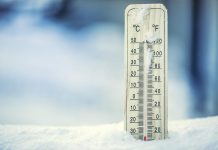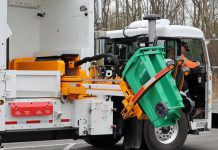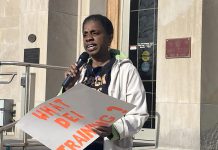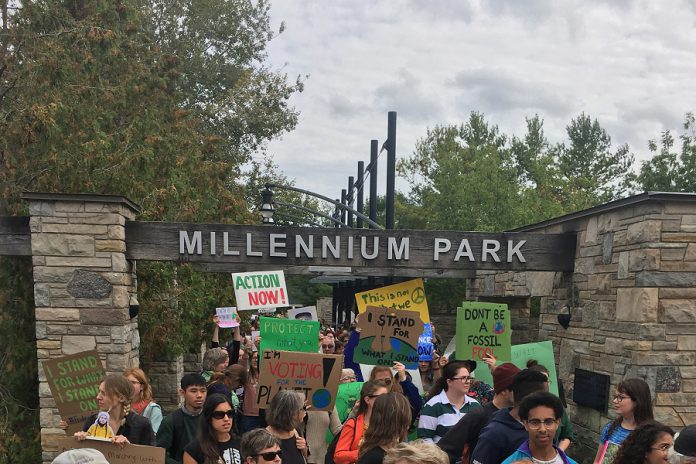
On March 27, 2019, Abacus Data reported that 83 per cent of Canadians were quite, very, or extremely worried about the impacts of climate change. The nation-wide survey conducted by the Ottawa-based firm found that climate change is among the top five worries for 69 per cent of Canadians ahead of the federal election, with 12 per cent giving the issue their utmost concern.
By coincidence, a day after the results of that survey were published, the United Nations General Assembly held a high-level meeting on climate and sustainable development in New York City. A main goal of this meeting was to address the now 11-year deadline presented in the Intergovernmental Panel on Climate Change (IPCC) study by motivating sustainable development and significant emission reduction targets around the globe.
General Assembly president María Fernanda Espinosa Garcés put the onus of climate change on world leaders, saying that 2020 has to be the last year carbon emissions rise as a result of human activity.
Part of the assembly included a fireside chat of the Conference of the Parties to the UN Framework Convention on Climate Change, in which pertinent environmental issues were discussed. This conference concluded with acting chat moderator, Espinosa Garcés, asking panellists to inspire youth leaders in just one word.
Michal Kurtyka, Secretary of State at the Ministry for Energy and Environment of Poland, succinctly answered, “you are the voters of tomorrow — use your power.”
Kurtyka was the President of the 24th Conference of the Parties of the Climate Change Convention (COP24) that partially acted as an accountability meeting on the 2015 Paris Agreement commitments. He has a valid point. Canadians aged 18 to 38 — generally considered the millennial age range — make up over a third of the country’s eligible voters, according to Abacus data.
As a millennial myself, this will be my second time voting in a federal election. This time is different. Perhaps it’s my age, post-secondary schooling, or personal interests. I’ve found myself captivated by this electoral race. I believe I owe (as I’m sure many of my peers do as well) a large portion of my newfound political engagement to the national and global push for youth to become informed voters.
It has become “in” to be in the know.
I consider this change a by-product of the Greta Thunbergs and Autumn Peltiers of the world. Millennials are realizing that the future of our planet, and the well-being of things on it, is not a problem to be left to the grown-ups anymore. We are becoming the grown-ups and it is becoming our problem. These young climate activists are able to paint that picture so perfectly because of that very characteristic: their age.
Whenever I watch a video of Thunberg or Peltier speaking, I can’t help feeling guilty. I feel like I may soon belong to a generation that has not done enough to combat climate change, that youth like Thunberg and Peltier may soon be speaking to me. Maybe that guilt is what will drive millennial voters to the polls in record numbers.
It’s been almost a year to the day the IPCC released its bombshell report that stated humankind has just 12 (now only 11) years to act, if we are to limit global warming to 1.5°C. Climate scientists suggest that if this maximum is breached by just half a degree, there will be an exponential increase in the risk of experiencing things like extreme droughts, floods, heat waves, and widespread poverty and displacement.
As a part of this series of reports on climate change, the IPCC released its most recent findings on September 25th. Titled IPCC Special Report on the Ocean and Cryosphere in a Changing Climate, this report projects how rising global water levels and melting ice will affect change under varying emission scenarios.
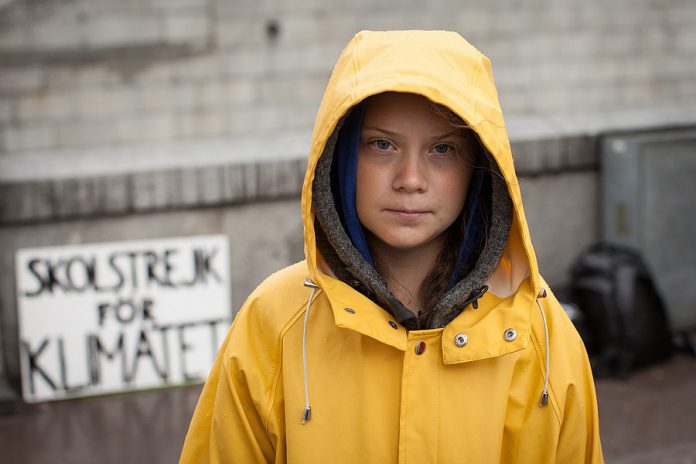
Arguably one of the most sobering estimates presented by the report is that sea levels could rise by as much as 1.1 metres by 2100. Dr Jean-Pierre Gattuso of CNRS (France’s national science agency) told the BBC if this were to happen that, “this will have widespread consequences for low-lying coasts where almost 700 million people live.”
As a 22-year-old post-secondary student, I can tell you that the climate and each political party’s position on it are at the forefront of my mind and the minds of many of my peers as we visit the polls.
At the time of writing this, we have still yet to receive fully costed platforms from all major parties. Without these, it is hard to say with certainty what each party plans to do in response to the warming of our planet and how they plan to spend and act.
However, environmental-centred debates, like the 100 Debates on the Environment project, give us a sense of where the major parties and their local candidates stand on the issues of climate change, wilderness protection, toxins, and biodiversity.
Issues-themed debates like 100 Debates for the Environment have never taken place on this scale in Canada before.
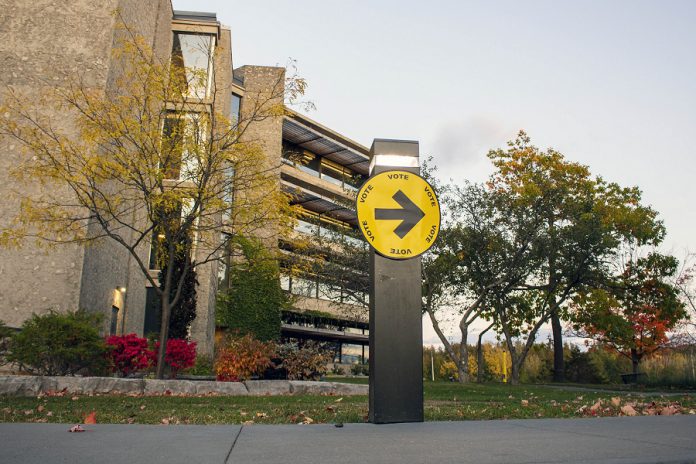
The Peterborough debate was co-hosted by GreenUP, the Trent Central Student Association, and several other organizations. You can watch the entirety of the debate.
For the first time ever, millennials will be the biggest voting group in Canada.
Michal Kurtyka said that we are the voters of tomorrow. I say we are the voters of today.
It’s more important than ever to research each party’s commitments to the issues that matter most to you and how your local candidates represent those commitments.



